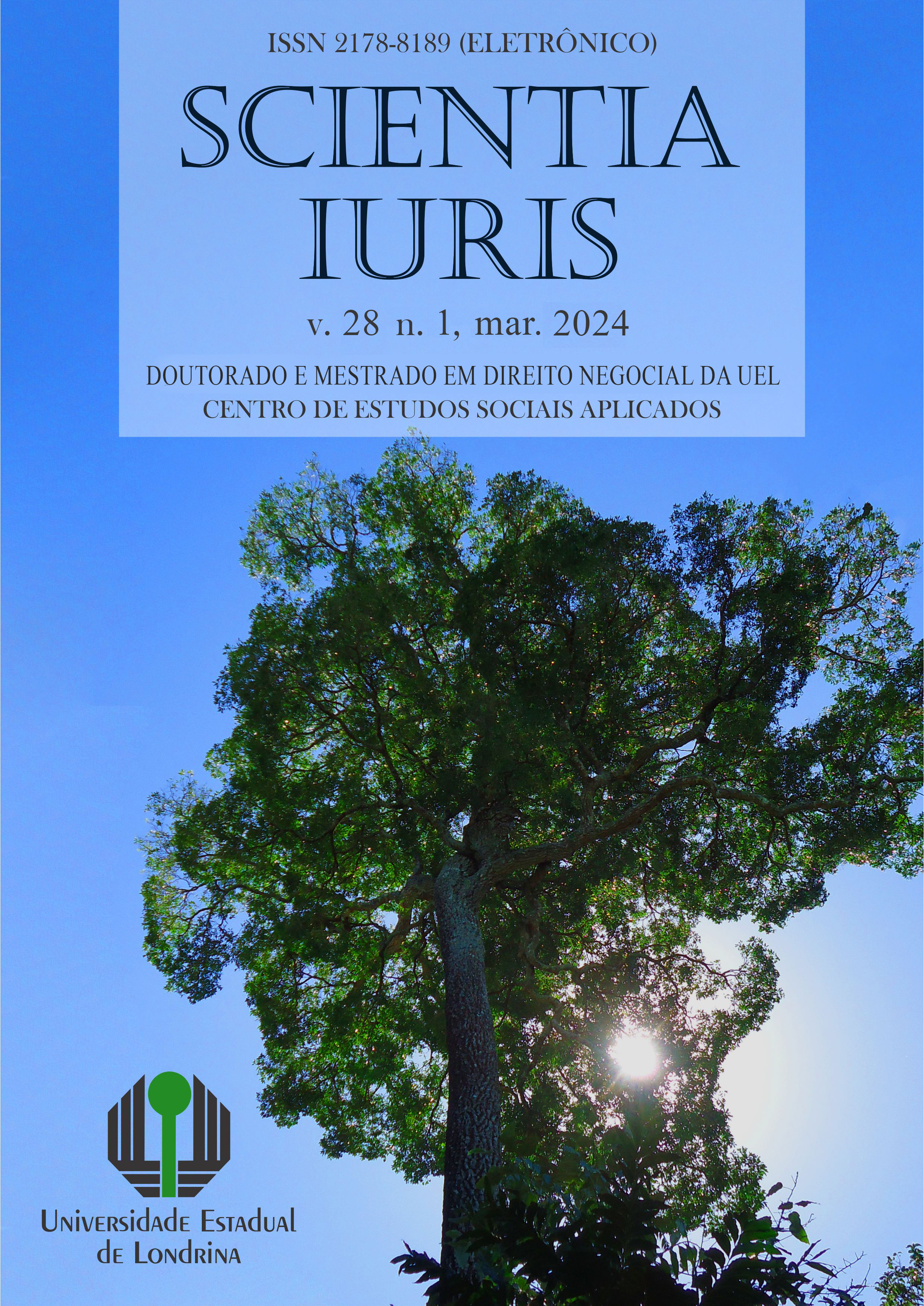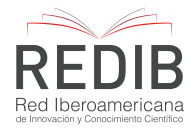Judicialization and judicial activism: the impacts on the representative system
DOI:
https://doi.org/10.5433/2178-8189.2024v28n1p25-40Keywords:
Judicialization. Judicial activism. Judicial power. Representative system.Abstract
The work intends to analyze the phenomenon of judicialization and judicial activism and the impact of the decisions of the Federal Supreme Court in the Brazilian scenario. The deductive method was used, with national and foreign doctrinal analysis, noting that, despite the existence of arguments against the assumption of an activist stance by the higher court, the decisions handed down in concentrated control of constitutionality adopted a responsive behavior, respecting the constitutional function that was granted to it, without necessarily invading the sphere of the Legislative Power, respecting for the most part the representative system.
Downloads
References
ARGUELHES, Diego Werneck; RIBEIRO, Leandro Molhano. Criatura e/ou Criador: transformações do Supremo Tribunal federal sob a Constituição de 1988. Revista Direito GV, v. 12, n. 2, p. 405-440, 2016. DOI: https://doi.org/10.1590/2317-6172201617
BARROSO, Luis Roberto. Judicialização, ativismo judicial e legitimidade democrática. yn]Thesis, Rio de Janeiro, vol.5, nº 1, 2012, p.23-32. Disponível em: https://www.e-publicacoes.uerj.br/index.php/synthesis/article/view/7433/5388 Acesso em: 09/06/2022
BELLINETTI, L. F. Direito e processo. In: FUX, Luiz; NERY JUNIOR, Nelson;
WAMBIER, Teresa Arruda Alvim (Org.). Processo e constituição. São Paulo: Revista dos Tribunais, 2006.
BERNSTS, Luísa Giuliani. DIAS, Giovanna. O debate Hart-Dowrkin: a crítica à doutrina da discricionariedade judicial. Consultor Jurídico. Disponível em: https://www.conjur.com.br/2021-jun-12/diario-classe-debate-hart-dworkin-critica-doutrina-discricionariedade-judicial Acesso em: 10/06/2022
BOGHOSSIAN, Bruno. Supremo precisa decidir se pode ou não se intrometer em outros Poderes Liberação do indulto de Temer não aplica limitação à atuação política do tribunal. Jornal Folha de São Paulo, dez. 2018. Disponível em: https://www1.folha.uol.com.br/colunas/bruno-boghossian/2018/12/supremo-precisa-decidir-se-pode-ou-nao-se-intrometer-em-outros-poderes.shtml. Acesso em: 09/06/2022.
CARVALHO, P. B. Curso de direito tributário. 10. ed. São Paulo: Saraiva, 1998.
CLEVE, Clemerson Merlin. LORENZETTO, Bruno Meneses. Constituição, Governo Democrático e Níves de intensidade do Controle Jurisdicional. Doutrinas Essenciais de Direito Constitucional. Ano I. Vol VII, ago. 2015. Revista dos Tribunais. Disponível em: https://proview.thomsonreuters.com/launchapp/title/rt/monografias/74363543/v7/document/108551158/anchor/a-108551158 Acesso em: 09/06/2022.
DE SOUZA, M. B. Rodriguez, José Rodrigo (2013). Como decidem as cortes? Para uma crítica do direito (brasileiro) - Rio de Janeiro: FGV. Direito.UnB - Revista de Direito da Universidade de Brasília, [S. l.], v. 1, n. 2, p. 203–207, 2019. Disponível em: https://periodicos.unb.br/index.php/revistadedireitounb/article/view/24595. Acesso em: 17 jun. 2022.
DWORKIN, Ronald. O Império do direito. São Paulo: Martins Fontes, 2000.
__________. Levando os direitos a sério. São Paulo: Martins Fontes, 2002.
FACHIN, Zulmar. Curso de Direito Constitucional. 3ª Edição. São Paulo. Método, 2008.
FEREJOHN, John. Judicializing Politics, Politicizing Law. Law and Contemporary Problems, v. 65, n. 3, 2002. DOI: https://doi.org/10.2307/1192402
GOMES, Sérgio Alves. Hermenêutica Constitucional: um contributo à construção do Estado Democrático de Direito. 1ª Edição, 4ª reimpressão. Curitiba: Juruá, 2021.
LABRÍN, Sebastián. SALLABERRY, Juan Pablo. Estudio identifica los cambios de criterio en fallos de la Suprema. Latereca, 19/11/2018. Disponível em: https://www.latercera.com/nacional/noticia/presidente-la-corte-suprema-muerte-catrillanca-una-situacion-particularmente-grave/408868/ Acesso em: 09/06/2022.
LUNARDI, F. C. (2021). Comportamento estratégico do STF nas questões de interesse governista: ativismo judicial ou prudência?. Revista Brasileira De Estudos Políticos, 123, 177-210. https://doi.org/10.9732/2021.v123.734 Disponível em: https://pos.direito.ufmg.br/rbep/index.php/rbep/article/view/734 Acesso em: 09/06/2022.
OLIVEIRA, Claudio Ladeira de. Democracia e ativismo judicial: algumas considerações sobre suas causas e consequencias. Revista De Direitos E Garantias Fundamentais, 2015, 16(1), 183-216. https://doi.org/10.18759/rdgf.v16i1.642 Disponível em: https://sisbib.emnuvens.com.br/direitosegarantias/article/view/642 Acesso em 09/06/2022. DOI: https://doi.org/10.18759/rdgf.v16i1.642
OLIVEIRA, Nathan Figueiredo. LOPES FILHO, Juraci Mourão. Uma análise Teórica das Medidas Sanitárias de enfrentamento da Pandemia do Covid-19 no Brasil: Quem decide, como decide e por quê? Revista Brasileira de Direito Constitucional. Encontro virtual. V. 6 n 2 p.22-40 jul/dez. 2020. DOI: https://doi.org/10.26668/IndexLawJournals/2525-961X/2020.v6i2.7157
PAULA, Alexandre Sturion de. Limites e possibilidades processuais do ativismojudicial à luz da Constituição Federal. Dissertação (Mestrado em Direito Negocial). Universidade Estadual de Londrina, UEL. Londrina, 2017. Disponível em: http://www.bibliotecadigital.uel.br/document/?code=vtls000126378 Acesso em 18/08/2022.
PAZ, Anderson Barbosa. FITTIPALDI, Italo. Uma análise do padrão de julgamento do Supremo Tribunal Federal (STF) sobre ações diretas de inconstitucionalidade entre 2010 e 2019. Revista Diretio FGV. V. 18. n 1e 2013. São Paulo 2022. Disponível em: https://bibliotecadigital.fgv.br/ojs/index.php/revdireitogv/article/view/85611 Acesso em: 09/06/2022. DOI: https://doi.org/10.1590/2317-6172202213
PINHEIRO, Aline. Justiça precisa saber onde e como chegar. Entrevista com Ministro Ricardo Lewandowski, 7 de fevereiro de 2010, Portal Consultor Jurídico. Disponível em: . Acesso em: 13 jan. 2012.
POGREBINSCHI, Thamy. Judicialização ou representação? Política, direito e democracia no Brasil. Rio de Janeiro: Elsevier, 2011. DOI: https://doi.org/10.1016/B978-85-352-5150-0.50014-7
PINHO, Humberto Dalla Bernardina de. STACANTI, Maria Martins Silva. A Ressignificação do Princípio do Acesso à Justiça à luz do art. 3º do CPC/2015. Doutrinas Essenciais de Processo Civil. Vol. 1/2018. RePro. Vol. 254/2019. p.17-44. Thomson Reuters, 2016.
RODRIGUES, José Rodrigo. O originalismo democrático como modelo interpretativo da Constituição Brasileira. Revista de Estudos Constitucionais, Hermenêutica e Teoria do Direito (RECHTD), 11(3):461-479 Disponível em: http://revistas.unisinos.br/index.php/RECHTD/article/view/rechtd.2019.113.11/60747610 Acesso em 17/06/2022. DOI: https://doi.org/10.4013/rechtd.2019.113.11
SARLET, Ingo Wolfgang. A eficária dos Direitos Fundamentais. Porto Alegre: Livraria do Advogado, 1998.
SUPREMO TRIBUNAL FEDERAL (STF). Julgamentos de impacto social, político e econômico marcaram pauta do STF em 2019. 31 dez. 2019. Disponível em: http://portal.stf.jus.br/noticias/verNoticiaDetalhe.asp? idConteudo=433939. Acesso em: 09/06/2022.
ZANETI JR., Hermes. A constitucionalização do processo: o modelo constitucional da justiça brasileira e as relações entre processo e constituição. 2. ed. São Paulo: Atlas, 2014.
WAMBIER, Tereza Arruda Alvim. A vinculatividade dos precedentes e o ativismo judicial – paradoxo apenas parente. Empório do Direito 2017. Disponível em: https://emporiododireito.com.br/leitura/a-vinculatividade-dos-precedentes-e-o-ativismo-judicial-paradoxo-apenas-aparente-por-teresa-arruda-alvim Acesso em: 18/08/2022.
Downloads
Published
How to Cite
Issue
Section
License
Copyright (c) 2024 Vanessa Manganaro de Araujo Almeron, Luiz Fernando Bellinetti

This work is licensed under a Creative Commons Attribution 4.0 International License.
The journal reserves the right to modify, in the original text of the submitted article, normative, spelling and grammatical mistakes in order to maintain the cultured standard of language and the credibility of the journal. The journal will respect the authors' writing style. Changes, corrections or suggestions of conceptual order will be sent to the authors, when necessary. In such cases, the articles will be re-examined. The final exams will not be sent to the authors. The published works become the property of the journal, in other words, its total or partial reprinting is subject to the express authorization of the journal. In all subsequent citations, the original source of publication shall be cited and in the case of Photographic Speeches, shall be approved by the original author. The opinions expressed by the authors of the journal’s articles are of their sole responsibility.















